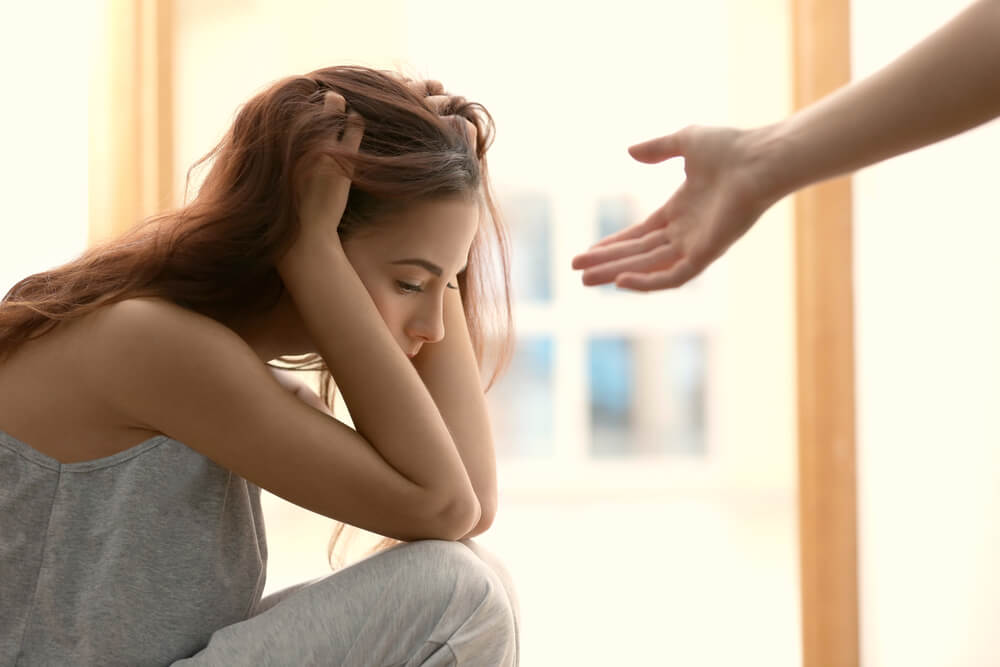Hidden depression is a condition in which the person does not present the typical symptoms of depression, but other patterns and characteristics that hide it, in fact, the first to ignore this situation is the one who suffers it, this is precisely what is all about: staying away from discomfort.
This process of trying to encapsulate or camouflage symptoms of depression occurs unconsciously or preconsciously, not that the person deliberately wants to appear something that is not or does not feel, cover-up is a way to defend himself from the suffering that the affected person may not feel able to bear.
- Of course.
- Hiding these kinds of problems from others and yourself is not a good strategy to solve it.
- On the contrary.
- Sometimes it can only become chronic How can we recognize that there can be a hidden depression?Here are the five signs shown by those with it.
“Tell me my friend: is life sad or am I sad?-Love Nerve-
People with hidden depression find it hard to be alone, others are a kind of pretext, because they are afraid to be alone with themselves, if there is no one around you, sharp feelings of sadness arise more easily.
That’s why they’re often obsessively sociable. They’re always looking for ways to organize meetings, they’re looking for social and other events, if they can’t, they just call their family, friends, colleagues, etc. , they don’t even want to think about loneliness, because it would work. like a mirror, forcing them to think.
It is very common for exaggerated behavior to reveal an attempt to compensate for a completely opposite feeling. In general, people with hidden depression tend to oversize their supposed state of well-being. If you ask them how they’re doing, they won’t say it. good, but ‘very good’.
As noted, this is a form of unconscious compensation. It’s almost an attempt to convince yourself and others of your mood. A smokescreen to ward off the idea of discomfort to avoid depression.
In hidden depression, as in any form of depression, the past plays a prominent role, so it is very common for past problems to occur in conversations with people who experience depression in this way, they may even refer to these problems in a humorous way, but the important thing is that they refer to them frequently.
The fact that you cannot get rid of the past is an indicator that there are unresolved experiences, this past may have been positive or negative, whatever, the fact is that someone continues to relive what has already happened through evocation, this implies that there are close links with the past and that it has not been possible to be placed in the real present.
Eating disorders always indicate some emotional discomfort; depression in particular, especially if the changes in appetite are not temporary, but tend to become permanent or even become more and more defined. These habits include eating less than normal, eating more than normal, or eating strangely.
It is very common for one of the forms of expression of hidden depression to be related to appetite, sometimes the person does not stop eating or eat more, but it shows disgust for certain foods or has very common digestive problems, in addition, there are also. cases where what happens is an obsession with eating something or doing it in a certain way.
Sleep is another factor that makes emotional discomfort visible, as with food, what we see in these cases is that there is a certain type of anomaly that can be of various types, usually sleeping little or sleeping too much.
Sometimes other behaviors appear, such as sleepwalking, difficulty sleeping in bed horizontally, intermittent sleep, etc. Each of these clearly inappropriate forms of rest can be a symptom of hidden depression.
Of course, all these indicators should be carefully evaluated, depression is more than a state of sadness or disguised denial and is not related to a temporary state of confusion, it is a condition that must be evaluated by a trained professional.

